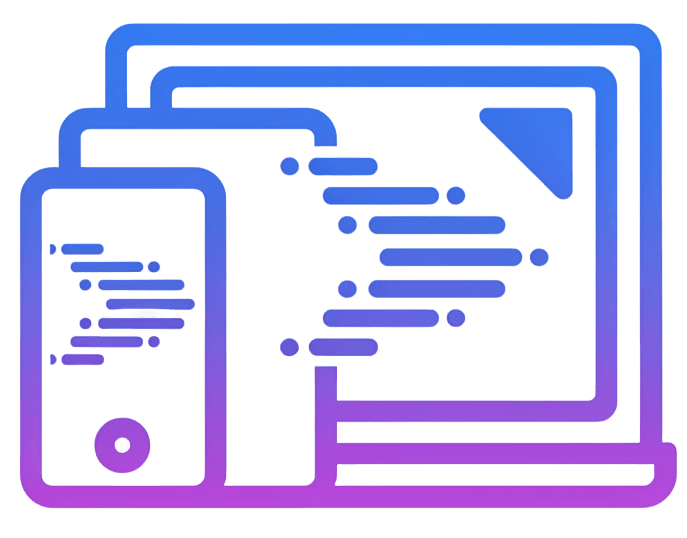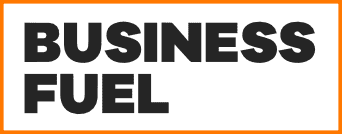Best Cashflow Lending Providers
We connect you with Australia's best cashflow lending providers, helping you secure loans from $5,000 to $500,000+. Our LendIQ™ technology compares top lenders in minutes, bypassing slow bank approvals.

How to Find the Best Cashflow Lending Provider in 3 Steps
Review Rates
Fill out our quick form so we understand your business needs. This protects your credit score from multiple loan enquiries.
We Find Your Best Match
Our LendIQ™ system reviews 80+ lenders to find the one best suited to approve your business. This won't affect your business credit score.

Get Your Capital
If the loan suits you, confirm by phone to get approved. Funds can be in your account in as little as 24 hours.
Why Choose Lend for Your Cash Flow Finance?
Access Specialist Lenders
Don’t waste time searching. We’ll help you compare rates and finance terms from multiple lenders that specialise in business vehicle lease.
Tailored Solutions & Support
A Lend specialist will guide you on your borrowing capacity and eligibility, and manage your finance from application to funding.

Smart Technology
We’ve built our LendIQ™ technology to make getting business vehicle finance online faster and easier. No clunky processes or paperwork.
Compare Rates from Top Cashflow Lending Providers
Review competitive cash flow loan rates from over 80 Australian lenders. We show all available loans from our panel, and lenders don't pay for placement. Check your eligibility and see personalised rates to find the right solution. Simply hit 'Get Rates' and we'll do the work for you.
$
No results found for the selected filters.
Why Trust Us to Find Your Best Cashflow Lending Provider?
You need a partner with a proven track record. We build that trust by having your best interests built directly into our process.
"The most favourable loan terms aren't found through loyalty or existing relationships, but through impartial matching based on data. The lender who best understands your specific business profile is the one who will offer the most competitive deal."
Andrew Beckett, Head of Broker and Third Party Distribution
Ready To Apply?
Get your tailored loan review in minutes. Enter your desired amount to start.
Our promise: no credit score impact
Your Guide to Choosing the Best Cashflow Lending Provider
This guide answers your questions in the order you’d ask them. We'll explain how these flexible loans work, cover eligibility and costs, and share an expert playbook for a faster, more certain approval for business financing.
Updated: 20/01/2026

Key Statistics About the Cashflow Lending Market
If you're seeking capital to manage your cash flow, you are not alone. This data from our platform provides a quick overview of the market.
59.16%
Loans for Day-to-Day Capital
$40,784
Average Unsecured Cash Flow Loan
15-20%
Construction's Share of SME Loans
50-70%
Startup Approval Rate (Alternative Lenders)
24-48 Hours
Average Funding Time for Fast Loans
What the Best Cashflow Lenders Look For

Before applying, it helps to know the standard requirements. Below are the basic criteria that the best cash flow lending providers look for. Meeting these is the first step toward securing the business loans you need.
- Active ABN/ACN: Your business must have an active Australian Business Number or Australian Company Number.
- Minimum Trading Period: You need to have been operating for at least 6 months.
- Australian Resident Directors: The main applicant must be an Australian citizen or permanent resident.
- Minimum Monthly Turnover: Your business needs to show a minimum monthly income, typically around $10,000.
Understanding How Cash Flow Loans Work

Getting the right type of capital is just as important as getting the funds themselves. It involves understanding how the facility works, the costs, and what factors influence your final interest rate. This knowledge helps you choose a product that supports your business's long-term health.
How a Cash Flow Loan Works
Cash flow lending gives your business capital to cover daily expenses, bridge financial gaps, or invest in growth. Unlike traditional bank products, these business loans are designed for speed and convenience. Key features generally include:
- Borrow from $10,000 to over $1,000,000
- Terms from 6 months to 3 years
- Funds can be used for any business purpose
- Weekly, fortnightly, or monthly repayment options
- No collateral options available, with most unsecured facilities up to $200,000
Common Cash Flow Finance Questions

Yes. It is possible to access significant capital without property security. Many lenders find that around 50% of their approved unsecured loans go to non-homeowners, with amounts up to $200,000 available.
You still have strong options. Specialist lenders focus more on your recent business performance and revenue than past credit issues, especially for clients with paid defaults.
It’s genuinely quick. For straightforward applications under $150,000, our clients can receive funding within 48 hours from a completed application.
Our Simple 3-Step Process On How to Secure Cash Flow Finance
Step 1: Choose Your Application Pathway
Decide on the best approach. You can apply directly to a bank, which can be slow and impact your credit score with each application. Alternatively, you can work with a finance specialist or use an online platform to review multiple options at once, often without affecting your credit file initially.
Step 2: Prepare Your Documents
Gather your essential documents. Typically, you will need your ABN, basic director details (like a driver's licence), and access to your last 6-12 months of business bank statements. For larger loans, have recent financial statements (P&L, BAS) ready.
Step 3: Submit and Finalise
Complete the application and securely provide your documents. A finance specialist will then review your profile and present you with the most suitable offer. After you review and electronically sign the documents, the funds are transferred to your account.
Helpful Finance Calculators
Pros and Cons of Cash Flow Lending
Weighing the benefits against the risks is crucial for making a smart financial decision. Before you apply, carefully consider both the advantages and disadvantages to ensure this type of funding aligns with your business goals.
The Advantages: Key Benefits for Business Agility | The Considerations: Key Risks and Trade-Offs |
|---|---|
|
|
Recent Articles
You might also like
Your Cash Flow Lending Questions, Answered

A fixed interest rate provides certainty with repayments that never change, making it easier to budget. A variable rate may start lower but can change, often influenced by the RBA's interest rate movements. If you prioritise predictable cash flow, a fixed rate is often the better choice for short-term finance.
Lenders review your bank statements, looking for consistent revenue, positive daily balances, and an absence of dishonoured payments. A strong, predictable pattern of income is the most important factor, as letting running balances diminish is a common mistake that negatively impacts applications.
Invoice financing (or debtor finance) allows you to borrow against unpaid customer invoices. Instead of waiting to be paid, a lender advances you a percentage of the invoice value immediately. A key factor people overlook is that not all debtors are eligible, so it's crucial to check if your specific clients can be financed.
What Happens After Your Loan Has Been Approved?
Once your loan is approved, the process is simple and digital. The lender will immediately email you the documents. After you have reviewed and electronically signed them, the funds are transferred directly into your business bank account, often appearing within a few hours.
Andrew Beckett is a finance executive with extensive Fintech expertise. As Head of Broker and Third Party Distribution at Lend, he fostered key partnerships, including COG aggregation and CAFBA. With prior sales roles in various fintech and finance companies, Andrew has been instrumental in transforming Australia's financial market, shaping new lending practices in the commercial lending space.
Andrew Beckett, Head of Broker and Third Party Distribution
Phil Druce leads the company’s technology and operations. With 20 years of experience in technology businesses, Phil has consistently driven growth through strategic planning and execution. Since 2016, he has been dedicated to creating technology-driven products and services at Lend, optimising processes, and delivering outstanding client experiences.
Phil Druce, Chief Operations Officer
Stories From Our Clients

Funding Growth for a Commercial Fitout Business
A commercial fitout client needed $100,000 to purchase materials for new jobs. With a maxed-out bank overdraft, they required additional working capital to take on new contracts. We secured an approval in 24 hours and had the funds delivered within another 48 hours after receiving their ATO portal details. This allowed them to seize growth opportunities without delay.

A Strategic Shift to a Flexible Line of Credit
A farm produce wholesaler was using term loans to manage stock purchases around client payment cycles. We refinanced their existing facility to an unsecured line of credit. This provided a strategic advantage, allowing them to pay down the balance in bulk and redraw funds as needed without reassessment, revolutionising how they manage their cash flow.

Bridging a Critical Cash Flow Gap for a Cattle Farmer
A cattle farmer required $150,000 to cover a critical eight-week cash flow gap while waiting for cattle sales to process. The uncertainty was causing significant stress. We secured the necessary funding within 48 hours, removing the mental burden of the looming shortfall and allowing the farmer to focus on running the business with confidence.
Why Australia Trusts Lend








Ready to Access Australia's Best Cashflow Lending Providers?
Our LendIQ™ technology instantly compares competitive offers from over 80 specialist lenders — tailored to your business cash flow, with fast approvals and flexible terms. It's free, secure, and won't affect your credit score. Start now and see your best-matched rates in minutes!
Our promise: no credit score impact



